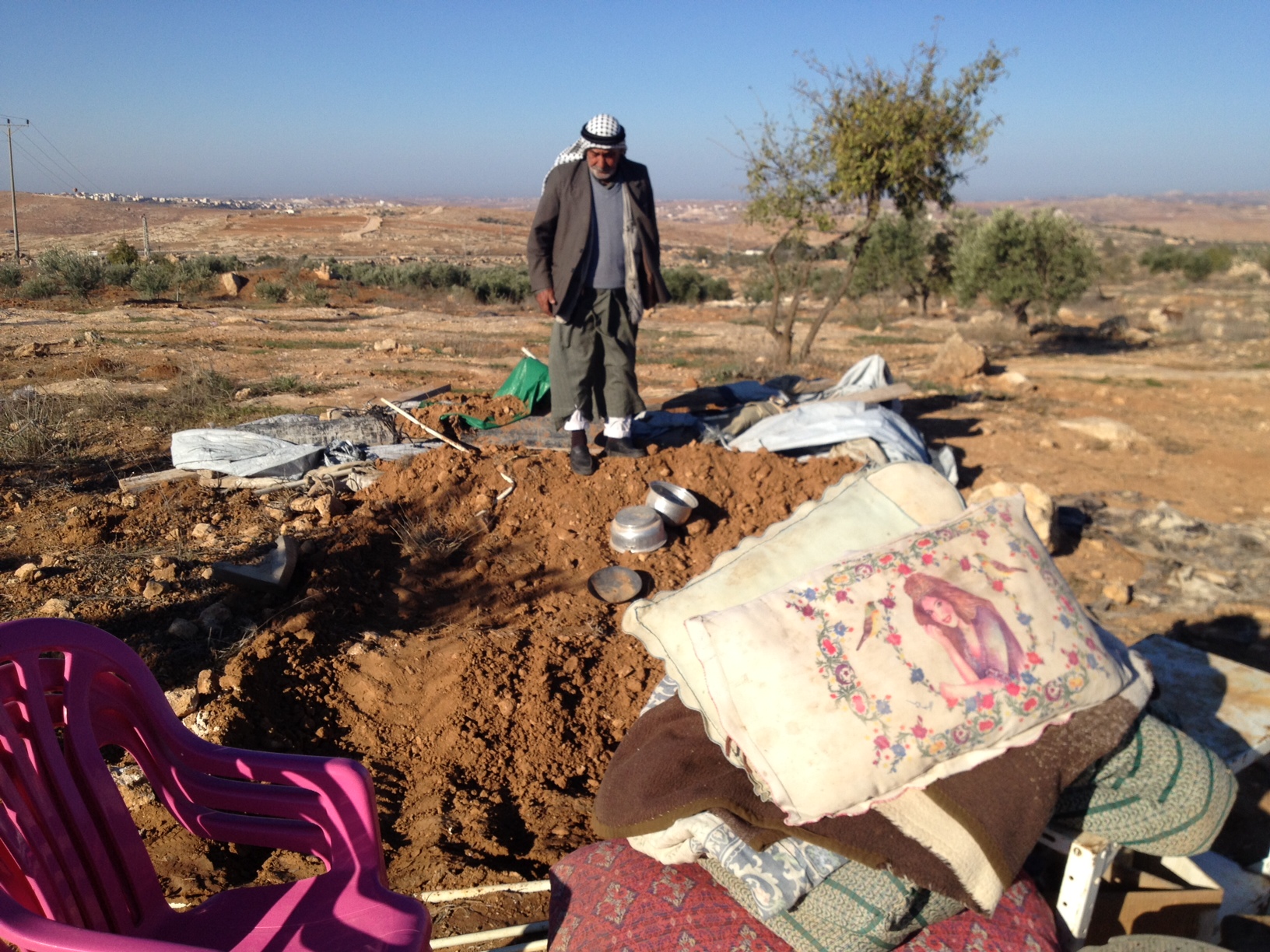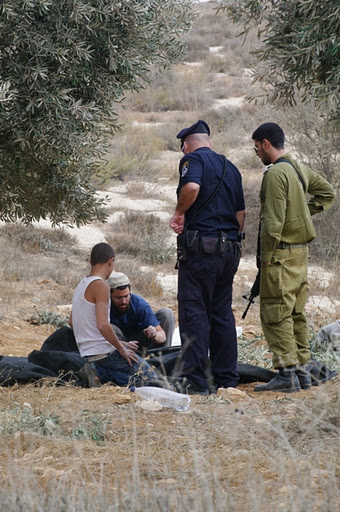Tag: Suseya Settlement
-
“We will not give up; to give up is to die” – Susiya resists mass demolition orders
27th June 2013 | International Solidarity Movement, Khalil Team | Susiya, Occupied Palestine Today, June 27, 2013, the Israeli Civil Administration served thirty-four demolition orders in the Susiya village, which is in Area C and surrounded by the Israeli colony of Suseya. Due to previous demolition orders, every existing structure in the village is now…
-
Tent demolition in Susiya, South Hebron Hills
by Wyatt Black 1 December 2012 | International Solidarity Movement, West Bank On the morning of November 28th, numerous soldiers came to the village of Susiya in the South Hebron Hills, unannounced from the nearby settlement, which is also called Susiya. The army jeeps and construction equipment came rolling in around eight o’clock and quickly…
-
Settlers desperately try to fit the role by stealing olives
by Aida Gerard 25 October 2011 | International Solidarity Movement, West Bank On Tuesday, illegal settlers from the Susiya settlement harvested the olive trees belonging to the Abu Sabha family from Susiya and Yatta, South Hebron Hills. Around 12 o’ clock a villager from the area spotted two settlers picking olives from the land of…


